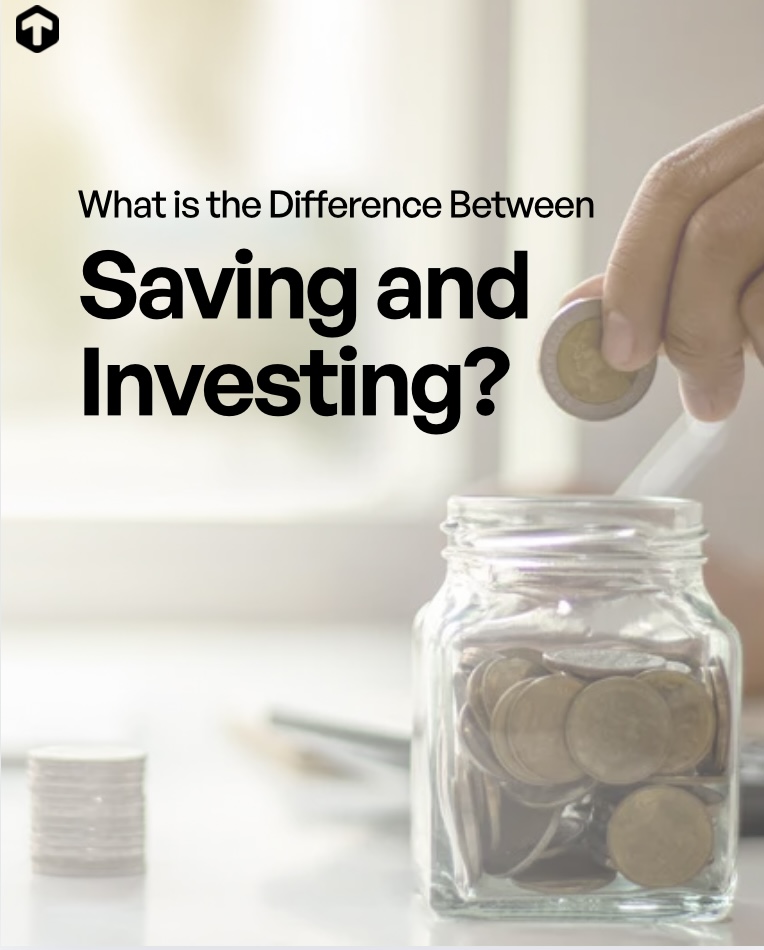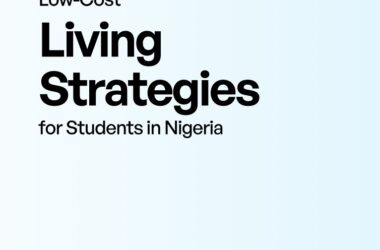In Nigeria, where inflation has been as high as 21.47% in recent years, simply saving money in a bank account often means losing purchasing power over time.
Think about this: the value of ₦100,000 you saved five years ago is not the same today due to the rising cost of goods and services. On the other hand, investing offers the potential for your money to grow and outpace inflation—but it comes with risks. So, how do you balance these two tools?
In this post, I’ll walk you through the key differences between saving and investing, how each can help you, and how to decide what’s right for your goals.
What Does it Mean to Save?
Saving is simply setting aside money for future use. This money is usually kept in a secure place, like a savings account or fixed deposit, where it remains accessible for emergencies or short-term goals.
Benefits of Saving
- Liquidity: You can access your funds quickly when needed.
- Safety: Savings accounts are generally low-risk, with no chance of losing your principal.
- Emergency Funds: It’s essential to have money saved for unexpected expenses like medical bills or car repairs.
Challenges of Saving
Low Returns: In Nigeria, even with interest rates on savings accounts recently increased to about 4.2%, this is still often less than the inflation rate
Erosion of Value: Inflation reduces the purchasing power of your saved money over time.
What is Investing?
Investing involves putting your money into assets like stocks, bonds, mutual funds, real estate, or even a business, with the expectation of earning a return. Investments generally grow your wealth over the long term but come with varying levels of risk.
Types of Investments in Nigeria
Nigeria offers a diverse range of investment options for individuals and institutions looking to grow their wealth. By understanding these investment options, you can make informed decisions to grow your wealth and achieve your financial goals.
Here are some of the most popular types of investments in Nigeria:
1. Stocks: Invest in shares of reputable companies like Dangote Cement or GTBank, and earn dividends and capital appreciation.
2. Bonds: Opt for secure and government-backed options like FGN Savings Bonds, which offer a low-risk investment opportunity.
3. Real Estate: Invest in properties in growing cities like Lagos and Abuja, which can provide long-term wealth growth and rental income.
4. Mutual Funds: Diversify your portfolio with managed mutual funds that invest in a range of assets, reducing risk and increasing potential returns.
5. Agri-Investment Portals: Invest in agricultural projects through online platforms, which can offer returns, supporting Nigeria’s agricultural growth and development.
Benefits of Investing
- Wealth Creation: Investments grow your money faster than traditional savings.
- Beating Inflation: Returns often outpace inflation, preserving your purchasing power.
- Passive Income: Some investments, like dividend-paying stocks or rental properties, provide ongoing income
Risks of Investing in Assets
- Market Volatility: Investments can fluctuate in value, leading to losses in the short term.
- Complexity: Understanding investments can be overwhelming for beginners.
- Illiquidity: Some assets, like real estate, are harder to convert into cash quickly.
Key Differences Between Saving and Investing
| Feature | Saving | Investing |
| Purpose | Short-term goals and emergencies | Long-term wealth building |
| Liquidity | High | Can be low for some assets |
| Returns | Low | Potentially high |
| Inflation Protection | Weak | Strong (for good investments) |
| Risk Level | Low | Varies from low to high |
How to Decide Between Saving and Investing
Your choice depends on your financial goals, timeline, and risk tolerance. Here’s a simple guide:
- Start With Savings for Safety: Build an emergency fund with at least three to six months of living expenses. Use a high-yield savings account to maximize interest.
- Set Financial Goals: Are you saving for a wedding, school fees, or retirement? Short-term goals (less than 3 years) are best suited for savings, while long-term goals should involve investing.
- Assess Your Risk Tolerance: Are you comfortable with the ups and downs of the stock market? If not, consider low-risk options like bonds or mutual funds
- Diversify: Don’t put all your eggs in one basket. Combine savings and investments to balance liquidity and growth.

Read Also: How to Start Saving Money with a Low Income
Conclusion
Understanding the difference between saving and investing can transform how you manage your money. Saving is your safety net—it ensures you’re prepared for emergencies and short-term needs. Investing, on the other hand, is your ticket to growing wealth and achieving financial independence.
As a Nigerian navigating the challenges of inflation and currency volatility, combining both strategies is essential. Start small, educate yourself, and take advantage of tools and resources designed to make saving and investing easier for you. Remember, the earlier you start, the more time your money has to grow.
If you’re looking for a platform to start your investment journey, Trove App is a great choice. Trove allows you to invest in a wide range of assets, like stocks, bonds and etfs, and even fixed-income products that let you earn steady returns. With Trove, you can grow your wealth while diversifying your portfolio.




